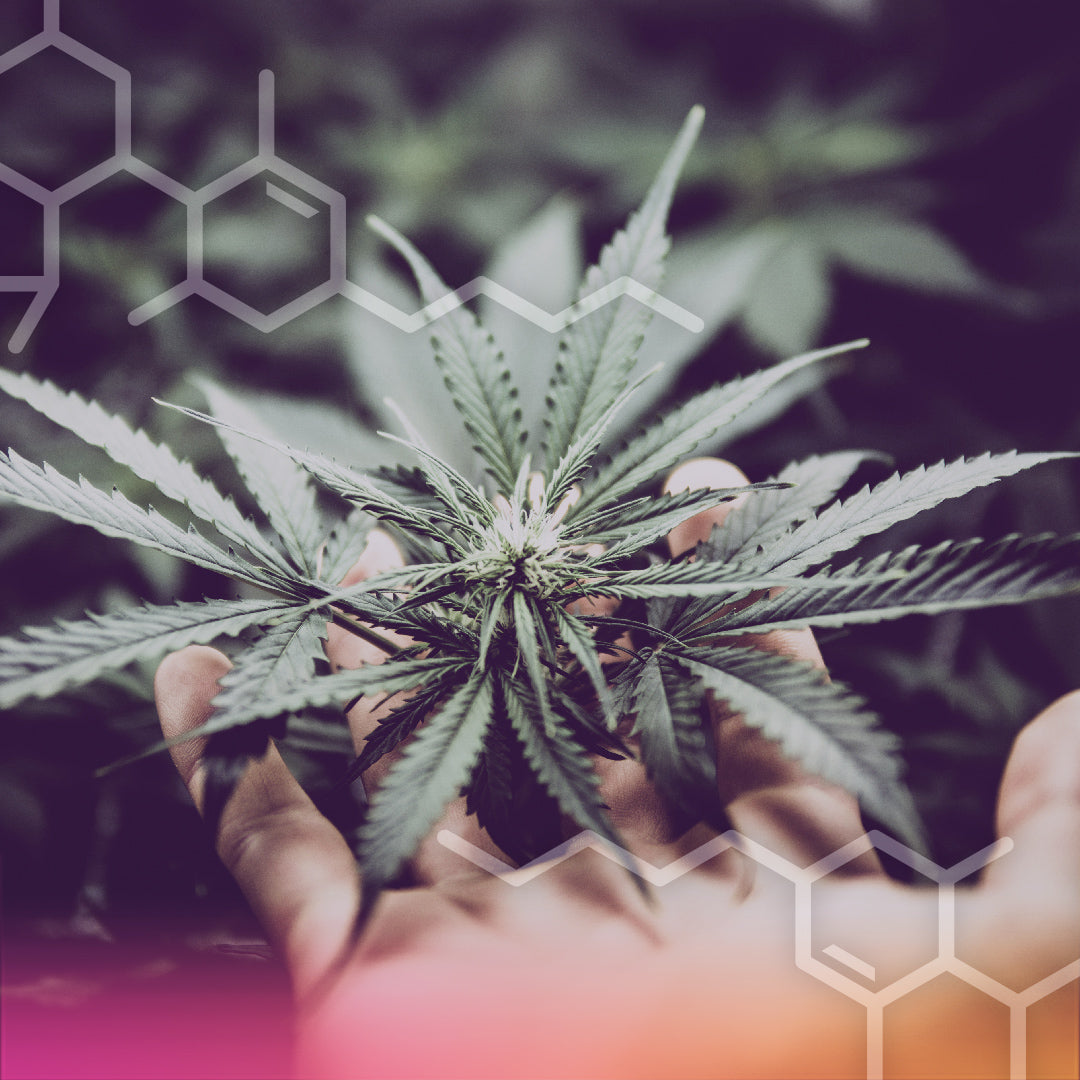
Hemp is comprised of over 60 different unique cannabinoids, naturally occurring chemical compounds that have been linked to a wide array of health benefits.1 Cannabidiol (CBD), the most prevalent active ingredient in hemp, is the focus of an increasing number of studies that support its therapeutic effects as an analgesic, antioxidant, anti-inflammatory, mood stabilizer, and antidepressant, just to name a few. As one of the major cannabinoids, CBD has a direct effect on both hormones and the body’s Endocannabinoid System (ECS), a system responsible for the control of many important processes including sleep, metabolism, memory, mood and sexual/reproductive functions. The ECS plays a significant role in keeping our bodies balanced by exerting control over the endocrine system, which produces a number of vital hormones, including those relating to reproductive functions and responses to stress.2
The ECS (Endocannabinoid System)
Before learning the benefits of cannabionids like CBD, it’s important to understand the body’s endocannabinoid system (ECS). The ECS produces molecules called endocannabinoids that react with cannabinoid receptors (CB1 and CB2) throughout our bodies, helping regulate functions such as appetite, pain management, mood, memory, inflammation, and the immune system.3
The Endocrine System
The Endocrine System is a collection of glands responsible for the release of important hormones throughout the body that control metabolism, energy levels, sexual/reproductive functions, sleep, mood, and more. The ECS has a direct role in managing the body’s endocrine system2, which is composed of the following glands:
Hormones and endocannabinoids both act as chemical messengers throughout the body, and directly affect each other, which is why cannabinoids like cannabidiol (CBD) can influence their release and production.4 CBD is a phytocannabinoid, which are compounds identical to the endocannabinoids already being naturally produced by your body. CBD, unlike the THC found in marijuana, does not give you a “high” or have any psychoactive effects. CBD stimulates the ECS, which in turn regulates hormonal balance through direct effect on the organs responsible for hormone release.4
The relationship between the ECS and endocrine system allow CBD to help bring balance to major hormones including:
Cortisol - Stress
Cortisol is the body’s primary hormone for managing stress levels and has a central role in the “fight-or-flight” response, produced by the adrenal glands. More stress increases cortisol levels, which can induce negative effects such as anxiety, depression, and even weight gain. CBD helps regulate cortisol levels through its interaction with the adrenal gland, helping to mitigate the high-stress, “fight-or-flight” response. This can also help improve sleep quality and the time it takes to fall asleep thanks to the reduced amount of stress that can keep you awake at night.5
Melatonin - Sleep
Speaking of sleep, CBD can also help to regulate your natural sleep-wake cycle through its interaction with melatonin, the hormone responsible for inducing sleep and managing energy levels. Research shows that since melatonin is produced in the pineal gland, which is affected by the ECS, melatonin levels can be regulated by CBD from the CB1 receptors. CBD is not a sedative, but it can help with your body’s processes to support better rest at the right time.6,7
Serotonin - Anxiety
Outside of the brain, serotonin acts as a hormone that affects your anxiety levels, mood, and sense of well-being. Research has shown a positive reaction between CBD and serotonin receptors, helping reduce anxiety when serotonin levels are unbalanced.8
Estrogen And Sex Hormones
Estrogen, an essential hormone to female reproductive and menstrual cycles, is also affected by CBD. CBD interacts with the production of estrogen and another predominantly female hormone, estradiol, in a positive way, regulating their levels, which can have positive effects on menopausal processes and even fertility. It’s important to note that estrogen, although considered to be a female sex hormone, plays an important role in male libido and erectile function as well, with estrogen receptors being located in the brain and reproductive organs.9,10
Insulin - Blood Sugar Control
Insulin is a hormone produced by the pancreas which assists in breaking down sugars and absorbing nutrients from food. CBD affects insulin production in the same way it affects other hormones - by regulating their production, which can help to reduce the risk of insulin-related problems such as diabetes and high or low blood sugar levels (hyperglycemia and hypoglycemia). Pancreatitis, or inflammation of the pancreas, is a common cause of diabetes. CBD’s anti-inflammatory effects can reduce the inflammation of the pancreas, further improving the production of insulin.11
Homeostasis
When all bodily functions are working together simultaneously, in harmony, this is when our body is in homeostasis, or a balanced state. CBD can help your body reach homeostasis because of its anti-inflammatory properties and reactions with the hormones mentioned in this article. All of these processes, working together because of the ECS and endocrine system and their direct relationship with CBD, help maintain an internal balance of functions within your body.4
Happy Stork
Happy Stork specializes in offering full spectrum hemp oil/CBD products for fertility support and those who are trying to conceive (TTC). Our full spectrum, whole plant hemp formula contains many phytocannabinoids that can help support fertility and overall wellness. Visit our ecommerce store to find the right tincture for your TTC journey.
Click Here to View Our CBD for Fertility Products
Sources referenced:
Happy Stork products will not treat, cure or prevent any disease or health-related condition. Happy Stork products can provide overall health benefits.
Our fertility support products will not cure any infertility illnesses. If you're struggling to conceive we recommend consulting a Reproductive specialist. No supplement will be able to overcome infertility concerns including but not limited to blocked fallopian tubes, male factor infertility, thyroid dysfunction, etc.. Happy Stork has additional fertility information available in our blog. We wish you the absolute best in your TTC journey. We are not doctors but we are always happy to hear feedback from our customers. To learn more about the benefits of our tincture products for fertility please read our benefits overview here.